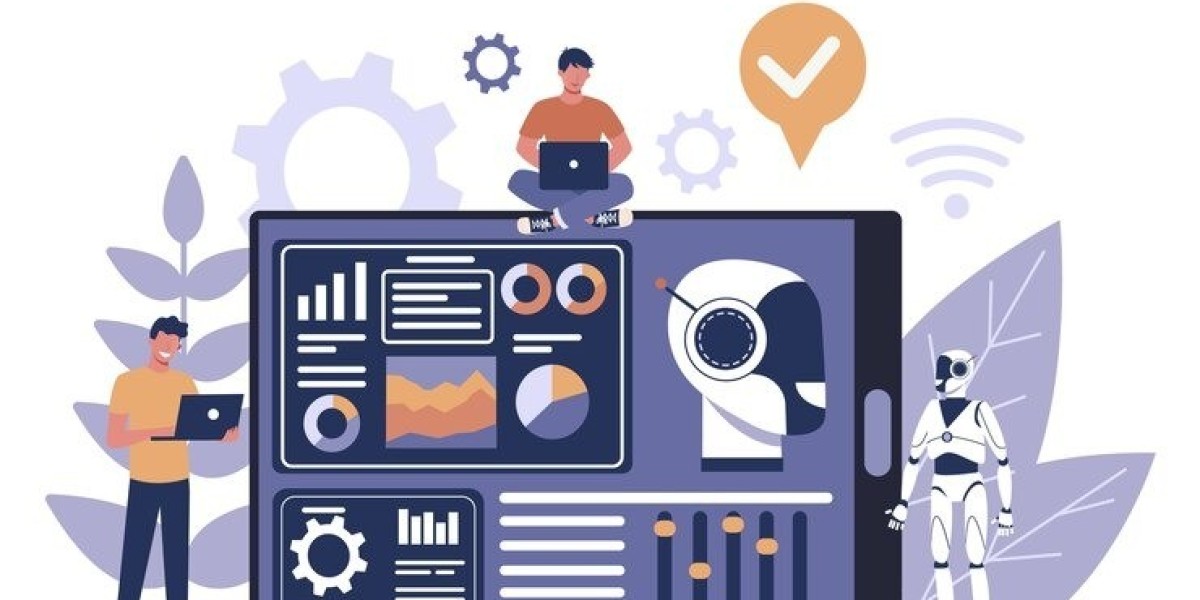As artificial intelligence continues to evolve, so does its role in transforming industries. Businesses of all sizes are increasingly turning to AI automation services to streamline operations, enhance efficiency, and reduce costs. With support from an experienced AI automation agency, organizations are preparing for a future where automation plays a central role in every aspect of business.
In this article, we explore the top AI automation trends expected to shape the next five years, highlighting how they will impact various sectors and redefine the future of work.
The Rise of AI-Powered Hyperautomation
One of the most significant AI automation trends is hyperautomation — the next level of digital process automation. Hyperautomation combines AI, machine learning, robotic process automation (RPA), and analytics to automate end-to-end workflows across departments.
Key benefits include:
Streamlined back-office operations
Enhanced decision-making through real-time data analysis
Cost reduction through task elimination
Organizations working with a trusted AI automation agency can design custom hyperautomation strategies tailored to their unique goals.
Increased Adoption in Small and Medium Businesses (SMBs)
Previously considered a luxury for large enterprises, automation in business is now becoming accessible for SMBs. Affordable AI tools, cloud-based platforms, and scalable models make it easier for smaller companies to automate repetitive tasks.
Use cases in SMBs:
Automating customer support with chatbots
Managing invoices and accounting
Generating personalized marketing emails
AI-Driven Decision Making
Decision-making is no longer limited to data analysts. With the integration of AI into business intelligence tools, leaders can make smarter decisions faster. These systems analyze structured and unstructured data to provide actionable insights in real time.
Examples include:
Predictive analytics for sales forecasting
AI-based financial planning tools
Risk assessment in supply chain management
As this trend continues, businesses will rely more heavily on AI automation services to process complex data and guide strategic planning.
Voice and Language-Based Automation
Voice assistants and natural language processing (NLP) technologies are evolving rapidly. Future AI automation trends point toward systems that understand and execute commands in natural human language.
Practical applications:
Voice-enabled workplace assistants
NLP for customer service ticket routing
Automated meeting transcriptions and summaries
This shift allows businesses to interact with systems more intuitively, improving productivity and reducing the need for manual input.
Integration of AI with IoT and Edge Computing
The convergence of AI, Internet of Things (IoT), and edge computing will create smarter systems that process data in real time at the source. From smart factories to autonomous retail, this integration will transform how machines and systems interact.
Benefits include:
Real-time monitoring and response
Enhanced safety and equipment maintenance
Optimized logistics and inventory control
Ethical and Transparent AI Automation
As automation becomes more pervasive, ethical considerations are moving to the forefront. Businesses are expected to adopt fair, transparent, and accountable AI systems.
Key focuses:
Eliminating algorithmic bias
Ensuring data privacy
Building trust through explainable AI
Working with a responsible AI automation agency can help ensure your automation efforts align with ethical and regulatory standards.
Sector-Specific AI Automation Use Cases
AI is transforming industries in unique ways. Here are a few sector-specific AI automation trends:
Healthcare: AI tools are streamlining diagnostics, automating administrative tasks, and improving patient care coordination.
Finance: Automation is driving fraud detection, loan approvals, and customer onboarding.
Retail: Inventory management, dynamic pricing, and personalized shopping experiences are all enhanced through AI automation.
Each industry can benefit from specialized solutions provided by a dedicated AI automation agency.
Conclusion: Preparing for the Future of AI Automation
The next five years will see AI automation trends evolve from supportive tools to core business drivers. Companies that invest early in automation technologies will gain a significant edge in productivity, customer satisfaction, and innovation.
Partnering with a skilled AI automation agency ensures that implementation is strategic, scalable, and aligned with your long-term goals. These agencies provide the tools and insights needed to navigate complex transformations with confidence.







